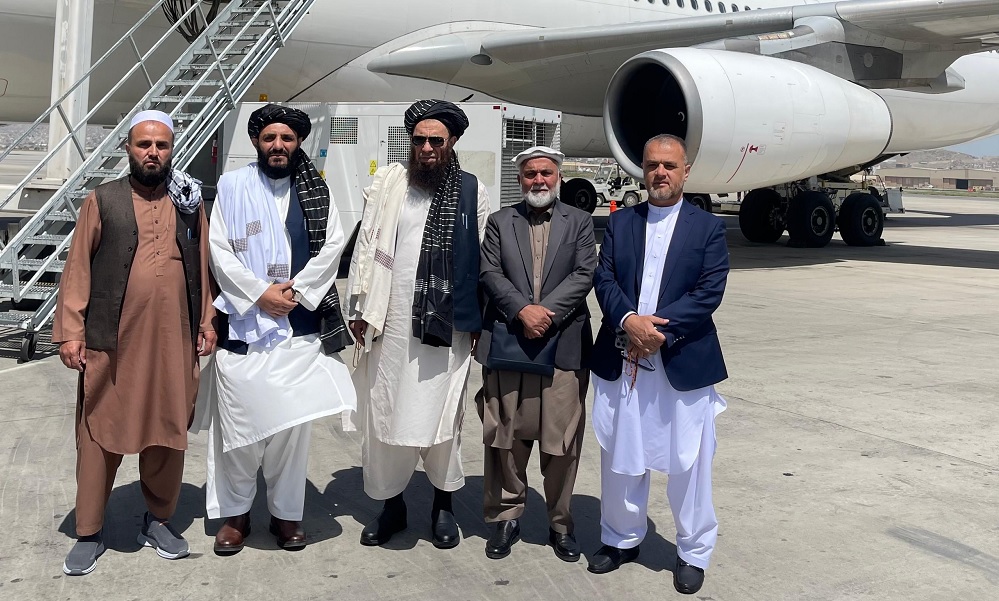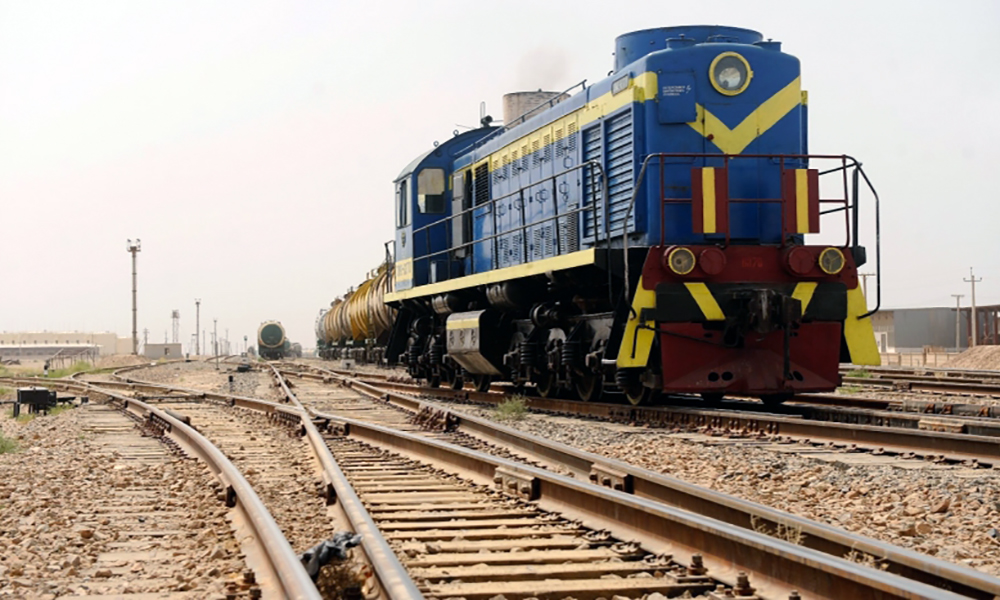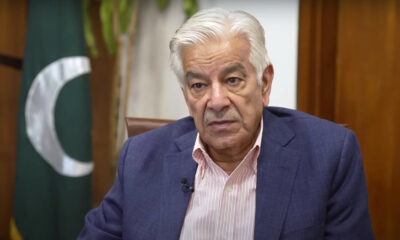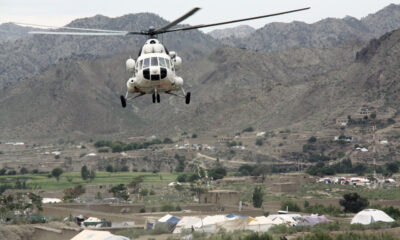Business
World Bank warns global economy could tip into recession in 2023

The World Bank slashed its 2023 growth forecasts on Tuesday to levels teetering on the brink of recession for many countries as the impact of central bank rate hikes intensifies, Russia’s war in Ukraine continues, and the world’s major economic engines sputter.
The development lender said it expected global GDP growth of 1.7% in 2023, the slowest pace outside the 2009 and 2020 recessions since 1993. In its previous Global Economic Prospects report in June 2022, the bank had forecast 2023 global growth at 3.0%, Reuters reported.
It forecast global growth in 2024 to pick up to 2.7% — below the 2.9% estimate for 2022 — and said average growth for the 2020-2024 period would be under 2% — the slowest five-year pace since 1960.
The bank said major slowdowns in advanced economies, including sharp cuts to its forecast to 0.5% for both the United States and the euro zone, could foreshadow a new global recession less than three years after the last one.
“Given fragile economic conditions, any new adverse development — such as higher-than-expected inflation, abrupt rises in interest rates to contain it, a resurgence of the COVID-19 pandemic or escalating geopolitical tensions — could push the global economy into recession,” the bank said in a statement accompanying the report.
The bleak outlook will be especially hard on emerging market and developing economies, the World Bank said, as they struggle with heavy debt burdens, weak currencies and income growth, and slowing business investment that is now forecast at a 3.5% annual growth rate over the next two years — less than half the pace of the past two decades.
“Weakness in growth and business investment will compound the already devastating reversals in education, health, poverty and infrastructure and the increasing demands from climate change,” World Bank President David Malpass said in a statement.
China’s growth in 2022 slumped to 2.7%, its second slowest pace since the mid-1970s after 2020, as zero-COVID restrictions, property market turmoil and drought hit consumption, production and investment, the World Bank report said. It predicted a rebound to 4.3% for 2023, but that is 0.9 percentage-point below the June forecast due to the severity of COVID disruptions and weakening external demand.
The World Bank noted that some inflationary pressures started to abate as 2022 drew to a close, with lower energy and commodity prices, but warned that risks of new supply disruptions were high, and elevated core inflation may persist. This could cause central banks to respond by raising policy rates by more than currently expected, worsening the global slowdown, it added.
The bank called for increased support from the international community to help low-income countries deal with food and energy shocks, people displaced by conflicts, and a growing risk of debt crises. It said new concessional financing and grants are needed along with the leveraging of private capital and domestic resources to help boost investment in climate adaptation, human capital and health, the report said.
The report comes as the World Bank’s board this week is expected to consider a new “evolution road map” for the institution to vastly expand its lending capacity to address climate change and other global crises. The plan will guide negotiations with shareholders, led by the United States, for the biggest revamp in the bank’s business model since its creation at the end of World War Two.
Business
Afghan businessman to invest up to $12 million in iron ore extraction in Panjshir

An unnamed Afghan businessman is reportedly ready to invest up to $12 million in iron ore mining in Panjshir province, the provincial governor’s spokesman Saifuddin Laton said Sunday.
According to Laton, the businessman has shown interest in investing between $3 and $12 million to mine an area covering 22 square kilometers in Paryan district in Panjshir.
Laton said the contract for this project has been approved by the Economic Directorate of the Prime Minister’s Office of the Islamic Emirate of Afghanistan (IEA).
In addition to extraction, the businessman will also carry out the processing and packaging of the iron ore within the province to create greater added value.
Laton said that in the first phase, the company will launch an exploratory program of the reserves over six months, during which around 500 jobs will be created.
After completing this phase, formal extraction work will begin, he said.
Afghanistan possesses substantial iron ore reserves, estimated at 2.2 billion tonnes, making it a top 10 country for extractable iron.
The largest deposit, Hajigak, is located in Bamiyan province, and contains an estimated 1.7 billion tonnes of high-grade ore.
Business
Afghan deputy agriculture minister leaves for Iran’s international expo

Sadri Azam Osmani, Deputy Minister of Agriculture, Irrigation and Livestock, on Saturday left Kabul to participate in the 7th International Exhibition of Iran’s Export Capabilities in Tehran.
The expo will be held from April 28 to May 2. According to the organizers, between 2,000 and 3,000 foreign traders from around the world are expected to attend.
Osmani expressed hope that this trip will pave the way for the growth of trade and attract more investments to Afghanistan.
Business
Pakistan’s deputy PM discusses Trans-Afghan Railway Line project with Uzbek FM
On Thursday, in a post on X, Pakistan’s Foreign Ministry said Dar hoped that the three countries would soon sign the framework agreement for this important regional connectivity project.

Pakistan’s Deputy Prime Minister and Foreign Minister Ishaq Dar held a telephone conversation with the Foreign Minister of Uzbekistan, Saidov Bakhtiyor Odilovich, on Thursday to discuss the Trans-Afghan Railway Line Project.
This comes after Dar’s recent visit to Kabul, where he held talks with officials on the planned Uzbekistan-Afghanistan-Pakistan Railway Line Project.
The three neighboring countries signed an agreement in February 2021 to construct a 573-kilometer railway line through Afghanistan, connecting landlocked Central Asia to Pakistan seaports, with an estimated cost of $4.8 billion to enhance regional economic connectivity.
On Thursday, in a post on X, Pakistan’s Foreign Ministry said Dar hoped that the three countries would soon sign the framework agreement for this important regional connectivity project.
The two leaders also discussed strengthening bilateral relations, enhancing economic and trade connectivity, promoting people-to-people ties, and exchanged views on current regional and international issues.
-

 Latest News5 days ago
Latest News5 days agoAWCC activates new site in Nangarhar’s Kuz Kunar district
-

 Latest News5 days ago
Latest News5 days agoTarig Ali Bakheet and Japan’s Deputy Foreign Minister discuss Afghanistan’s situation
-

 Business5 days ago
Business5 days agoPakistan’s deputy PM discusses Trans-Afghan Railway Line project with Uzbek FM
-

 Latest News3 days ago
Latest News3 days agoAfghanistan’s medicine output reaches 900 types: Pharma Union
-

 Latest News4 days ago
Latest News4 days agoAfghan delegation to participate in Iran’s international expo
-

 Latest News4 days ago
Latest News4 days agoTerrorist attacks in Pakistan originate from Afghanistan: Khawaja Asif
-

 Latest News4 days ago
Latest News4 days agoWFP appeals for $25 million to help support Afghan returnees amid humanitarian crisis
-

 Latest News4 days ago
Latest News4 days agoRegistered Afghan refugees must return by June 30 or face deportation: Pakistani official
























